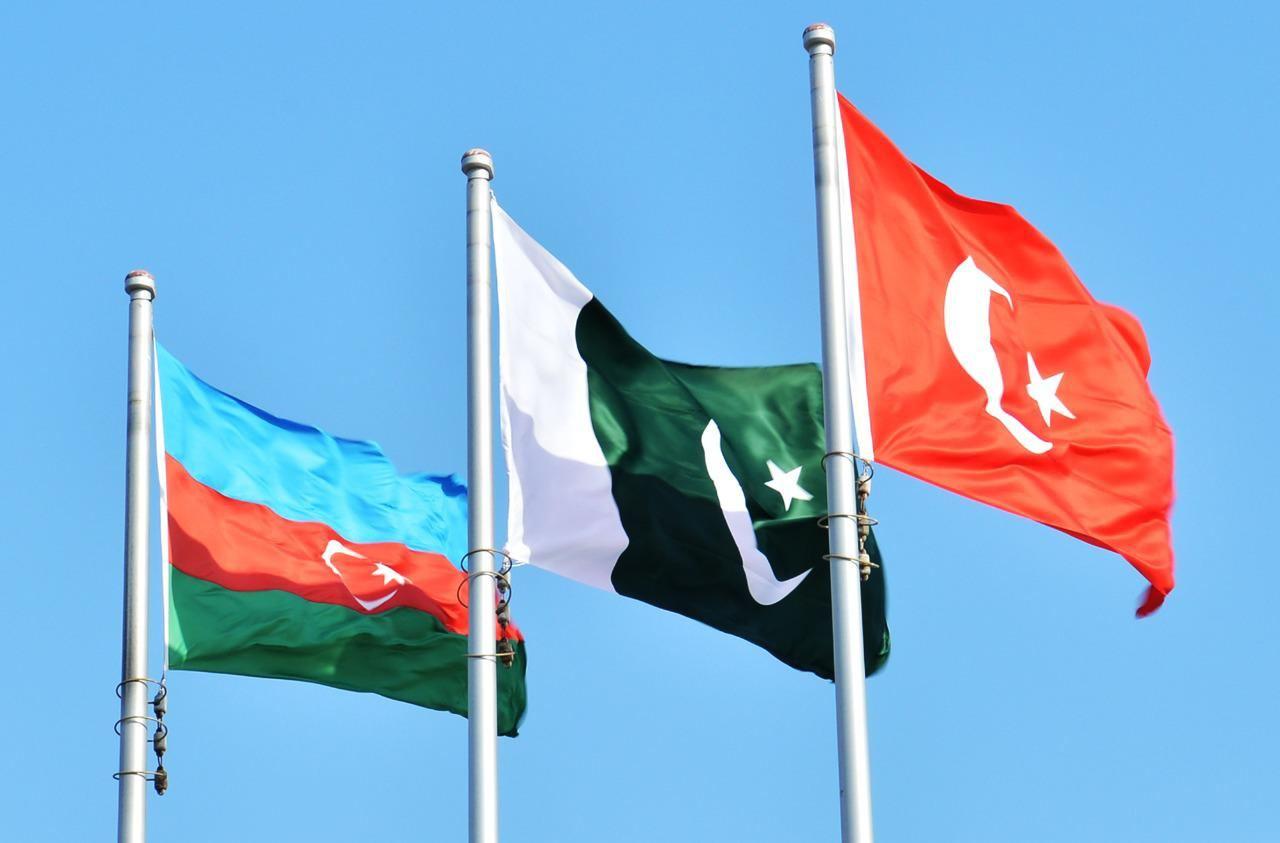India's Trade Relations: A Shift Away From Pakistan, Turkey, And Azerbaijan

Table of Contents
Strained Relations with Pakistan: Impact on Bilateral Trade
The history of India-Pakistan relations is fraught with conflict, significantly impacting bilateral trade. Despite periods of relative calm, political tensions and security concerns have consistently hampered the growth of economic ties. Both countries have imposed various trade barriers and restrictions, limiting the potential for mutually beneficial exchange. The Line of Control (LoC) further complicates cross-border trade, leading to significant logistical challenges.
- Decreased cross-border trade: The volume of trade between India and Pakistan has remained consistently low, far below its potential. Trust deficits and political instability have undermined any substantial progress.
- Increased reliance on third-party intermediaries: The lack of direct trade routes necessitates the use of third-party countries as intermediaries, increasing costs and reducing efficiency.
- Impact on specific sectors: Sectors like textiles and agriculture, which could benefit significantly from bilateral trade, have been disproportionately affected by the strained relationship. Farmers on both sides have suffered due to reduced market access.
- Potential for future engagement: While currently minimal, the possibility of future trade engagement exists, contingent upon a significant improvement in political relations and a demonstrable commitment to de-escalation by both nations. Confidence-building measures and sustained dialogue are crucial.
Diversification Efforts: Seeking New Trade Partners
Recognizing the limitations of its existing trade partnerships, India has actively pursued a strategy of diversification, forging new alliances and exploring alternative markets. This proactive approach aims to reduce reliance on potentially unstable or unreliable trading partners and enhance its global economic standing.
- Focus on strengthening ties with ASEAN countries: India has significantly increased its engagement with the Association of Southeast Asian Nations (ASEAN), pursuing free trade agreements and strengthening investment links. This region offers a vast market and complements India's economic strengths.
- Increased investment and trade with African nations: Africa is increasingly seen as a key market for Indian goods and services. Initiatives like the India-Africa Forum Summit underscore this commitment to deeper economic cooperation.
- Exploration of new markets in Latin America and the Middle East: India is actively exploring opportunities in Latin America and the Middle East, focusing on strategic sectors like energy, infrastructure, and technology. These regions offer diverse markets and resources.
- Emphasis on regional trade agreements to boost exports: India's participation in regional trade agreements, such as the Regional Comprehensive Economic Partnership (RCEP), demonstrates its commitment to expanding market access and promoting exports. This approach aims to bolster its global competitiveness.
Geopolitical Factors Influencing Trade with Turkey and Azerbaijan
The geopolitical landscape of Eurasia is dynamic, influencing India's relations with Turkey and Azerbaijan. While historically there were some trade links, geopolitical shifts and evolving strategic priorities have impacted the nature and volume of trade.
- Impact of regional conflicts on trade routes: Regional conflicts and geopolitical instability have created uncertainties regarding trade routes, impacting the reliability and efficiency of transportation and logistics.
- Concerns regarding political stability and economic risks: Perceptions of political risk and economic instability in certain regions have influenced India's decision to diversify its trade partners.
- Reassessment of strategic partnerships: India's foreign policy prioritizes strategic alignment, leading to reassessment of existing partnerships and a focus on countries with shared strategic interests.
- Exploration of alternative sourcing options for specific goods: India has actively sought alternative sources for specific goods and services, mitigating its dependence on any single trading partner.
Conclusion: India's Trade Future: A New Era of Strategic Partnerships
India's shift away from traditional trade partners like Pakistan, Turkey, and Azerbaijan is driven by a complex interplay of geopolitical considerations, economic realities, and a strategic focus on diversification. The pursuit of new strategic partnerships in regions like Southeast Asia, Africa, and Latin America reflects a proactive approach to securing robust and reliable trade relationships. This diversification strategy holds immense potential for boosting India's economic growth, strengthening its regional influence, and enhancing its global standing. To learn more about this evolving landscape, delve deeper into India's evolving trade policy and its implications for global commerce by searching for keywords like "India's new trade partners," "India's trade diversification strategy," or "India's global trade relationships."

Featured Posts
-
 Government Defends Early Release Plan To Alleviate Prison Overcrowding
May 18, 2025
Government Defends Early Release Plan To Alleviate Prison Overcrowding
May 18, 2025 -
 Amsterdam Knife Attack Police Conduct Raid After Multiple Injuries
May 18, 2025
Amsterdam Knife Attack Police Conduct Raid After Multiple Injuries
May 18, 2025 -
 No Fortnite On I Os Heres Why
May 18, 2025
No Fortnite On I Os Heres Why
May 18, 2025 -
 Major Jailbreak In New Orleans 11 Inmates Murder Suspects At Large
May 18, 2025
Major Jailbreak In New Orleans 11 Inmates Murder Suspects At Large
May 18, 2025 -
 Kanye West Accuses Kim Kardashian Of Sex Trafficking A Detailed Analysis
May 18, 2025
Kanye West Accuses Kim Kardashian Of Sex Trafficking A Detailed Analysis
May 18, 2025
Latest Posts
-
 Will Michael Conforto Find Success Like Teoscar Hernandez In La
May 18, 2025
Will Michael Conforto Find Success Like Teoscar Hernandez In La
May 18, 2025 -
 Can Conforto Replicate Hernandezs Success With The Dodgers
May 18, 2025
Can Conforto Replicate Hernandezs Success With The Dodgers
May 18, 2025 -
 Dodgers Conforto Following Hernandezs Path To Success
May 18, 2025
Dodgers Conforto Following Hernandezs Path To Success
May 18, 2025 -
 Mlb Baseball Home Run Prop Bets For May 8th Schwarber Spotlight
May 18, 2025
Mlb Baseball Home Run Prop Bets For May 8th Schwarber Spotlight
May 18, 2025 -
 Angels Pari Post Rain Game Winning Homer Against White Sox
May 18, 2025
Angels Pari Post Rain Game Winning Homer Against White Sox
May 18, 2025
